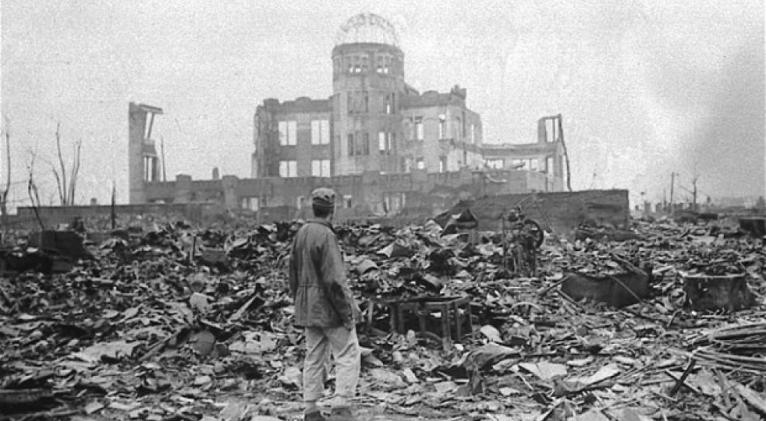US museum must call Hiroshima and Nagasaki 'war crimes', say Japanese
especiales

A Japanese group is demanding that literature and displays in national parks in the United States being set up to commemorate the atomic bomb programme describe the attacks on Hiroshima and Nagasaki as war crimes.
The US Energy Department and the National Park Service are drawing up plans for museums and other facilities linked to the Manhattan Project at Oak Ridge in Tennessee, Los Alamos in New Mexico and Hanford in Washington State.
An initial plan for the design of the parks is due to be released this summer, coinciding with the dropping of the atomic bombs on Hiroshima on August 6 and on Nagasaki three days later.
• Double atomic bomb survivor found in Japan
• British POWs who survived Nagasaki bomb sought for compensation offer
Historians estimate that as many as 166,000 people were killed in the first nuclear attack in history, while a further 80,000 perished in Nagasaki.

Describing the proposal for a national park to mark the attacks as "a very strange decision", Hiromichi Moteki, secretary general of the Society for the Dissemination of Historical Fact, said "This was absolutely a war crime".
"Not only was a nuclear attack brutal, but it indiscriminately killed the civilian population", he told The Telegraph. "I would go as far as to say that the nuclear weapons were not targeted at military facilities, but were focused on civilians.
"That, to me, is a war crime and the US has no excuses at all."
The mayors of the two cities have also expressed their concerns in letters to President Barack Obama, who signed the National Defence Authorisation Act into law on December 19, authorising the designation of the surviving facilities used in the atomic programme in the 1940s as national parks.
Tomihisa Taue, mayor of Nagasaki, wrote after the law was passed that the creation of a national park "may lead to justification of the atomic bomb attack and the promotion of the development of nuclear weapons".
Letters have also been sent to Caroline Kennedy, the US ambassador to Japan, who in a reply to the mayor of Nagasaki, said "Our shared history is important to both of our nations and we care deeply that we treat it with respect and honesty".
Officials giving a presentation on the parks in Washington on Wednesday said they intend to strike a balance between highlighting the scientific breakthroughs that were achieved in the Manhattan Project and the consequences of the attacks.
In the US, the use of the nuclear bombs is widely seen as shortening the war and saving the lives of hundreds of thousands of servicemen who would otherwise have been required to invade mainland Japan.
In Japan, however, a common perception is that the Japanese government knew it was defeated and was close to surrender. The use of the bombs was therefore an experiment and a sign of US military might to the Soviet Union.













Add new comment